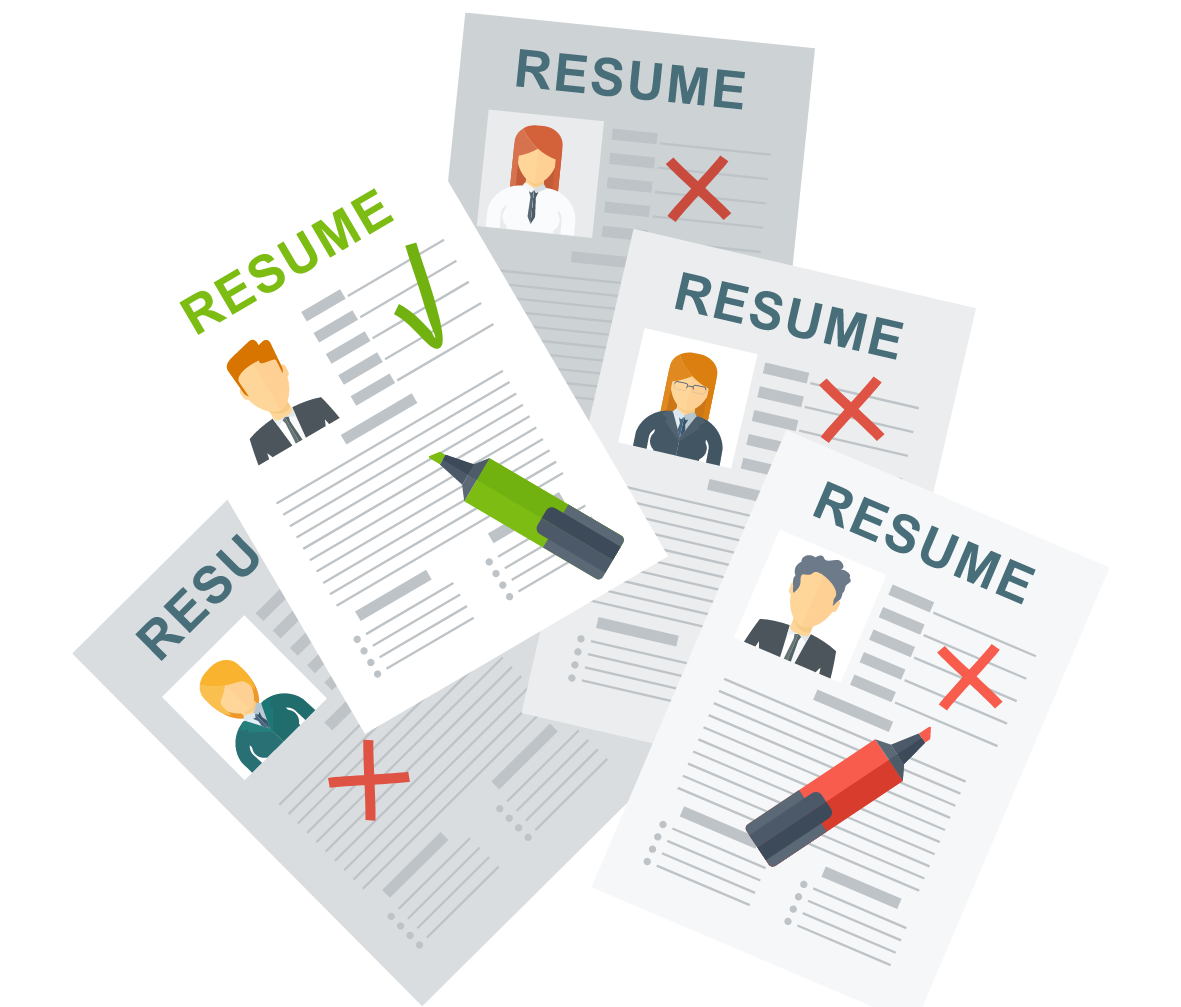Spinwell Global
Interesting Jobs for Interesting People
What is the Importance of Building a Professional Network?

‘Networking’ is a prevalent practice in the professional sphere, known as the process of interacting with others to exchange information and develop different contacts. Without knowing, you probably network daily when you meet new people or socialise with friends! We understand that putting yourself out there can be daunting, but building a professional network can offer various benefits for your career – here’s a handful of our favourites.
A Platform to Share Your Ideas
For some, career success is attributed to the pool of information gained through life and experiences. It can be tough to grasp the depth of your understanding without speaking and listening to like-minded people, but this is exactly what your network can offer!
Your network will provide you with a platform to trade ideas and develop professionally as an individual. If you’re stuck on a problem for an extended period and all your research opportunities have been exhausted, your network is on hand to help. Whether it’s offering updated information or alternative ideas, your network can provide expert support and help you get that all-important breakthrough.
Access Your Future Career Opportunities
As you interact with your network, you will stand out for your unique capabilities and skills, which may lead to future career opportunities. According to HubSpot, 85% of jobs are filled through networking, so it’s vital if you’re on the job hunt to get out there! Opportunities can vary, from meeting potential clients to impressing like-minded people, so it’s important to utilise this avenue.
Your network can also help you better understand yourself and your career path. Perhaps there is an opportunity you weren’t aware of or a skill set you are not effectively utilising? Regular communication with your network can keep you updated with these opportunities and help you unlock your true potential!
It all sounds very exciting (and trust us, it is!), but it’s also important to not lose sight of your end goal. Ensure the opportunities presented are right for you and don’t forget to explore alternative vacancies before making any final decisions.
Develop Relationships
Of course, the primary purpose of professional networking is to develop and nurture professional relationships; however, think of all the friends you have made in different career roles throughout your life so far!
We’re not saying to treat your network like a dating site or a method to gain new friends,but some of the strongest and most long-standing relationships* and friendships develop from these professional settings. Your networking contacts are likely to be people with similar careers and goals to yourself, so it’s not unheard of that your professional network spills over into your personal life.
Enjoying your career and the role you are working in is essential, so surrounding yourself with these people shouldn’t be a corporate or tedious process. Achieving this balance of professionalism is crucial to ensuring you are enjoying your career.
A great tip is to begin networking in your workplace and utilise your co-workers’ contacts to build a larger network. If your current workplace isn’t cutting it, you’ve come to the right place! Take a look at our current vacancies, or get in touch with our team of experts to find your perfect role.
*Please don’t use LinkedIn as a dating site – there are plenty of more appropriate platforms to search for the love of your life.
Get in touch with us
NK
The Future of Recruitment: What to Expect in 2025

As we approach 2025, the recruitment sector is poised for significant transformation driven by technological advancements, changing workforce dynamics, and evolving candidate expectations. Here’s a glimpse into what the future holds for recruitment professionals, job seekers, and organisations alike.
Increased Use of AI and Automation
Artificial Intelligence (AI) and automation will continue to reshape the recruitment landscape. By 2025, we can expect recruitment processes to become increasingly streamlined with AI-driven tools. These technologies will assist recruiters in:
- Resume Screening: AI algorithms will analyse resumes swiftly, identifying the best candidates based on skills and experience, thus reducing the time spent manually sifting through applications.
- Chatbots: Virtual assistants will handle initial candidate inquiries, schedule interviews, and provide real-time updates, consequently enhancing the candidate experience.
- Predictive Analytics: Recruiters will leverage data analytics to forecast hiring needs, therefore identify skills gaps, and improving decision-making based on historical data.
Emphasis on Diversity and Inclusion
Diversity, equity, and inclusion (DEI) have become essential components of recruitment strategies. By 2025, organisations will prioritise building diverse teams to foster innovation and creativity. Expect to see:
- Bias Reduction Tools: Companies will adopt technology designed to minimise unconscious bias in the hiring process, ensuring fair and equitable treatment of all candidates.
- Diverse Sourcing Strategies: Recruiters will employ strategies to attract candidates from varied backgrounds, including partnerships with diverse organisations and targeted outreach initiatives.
Remote Work and Hybrid Models
The COVID-19 pandemic has permanently altered the workplace landscape, and remote work is here to stay. By 2025, companies will increasingly adopt hybrid work models, leading to:
- Global Talent Pools: Organisations will expand their search for talent beyond geographical boundaries, therefore allowing them to tap into global talent pools.
- Flexible Work Options: Candidates will expect flexibility in work arrangements, and employers will need to adapt their recruitment strategies to highlight their commitment to work-life balance.
Enhanced Candidate Experience
Candidate experience will emerge as a critical competitive advantage for employers in 2025. Companies will focus on creating positive and engaging experiences throughout the recruitment process, including:
- Personalised Communication: Candidates will receive tailored communication and feedback, making them feel valued and informed throughout their journey.
- Streamlined Processes: Organisations will work to reduce hiring timelines and simplify application processes, ensuring a seamless experience for candidates.
Skills-Based Hiring
The recruitment sector is shifting from traditional qualifications to a skills-based hiring approach. By 2025, employers will prioritise:
- Competency Over Credentials: Recruiters will assess candidates based on their skills, experiences, and potential rather than just their educational backgrounds.
- Upskilling and Reskilling: Organisations will invest in training programs to upskill their current employees, thus enabling them to adapt to changing market demands and fill skills gaps.
Integration of Virtual Reality (VR) and Augmented Reality (AR)
As technology continues to evolve, we can expect to see the integration of VR and AR in recruitment processes. By 2025, these technologies will be used for:
- Virtual Job Fairs: Companies will host immersive job fairs where candidates can explore virtual booths and engage with recruiters in real-time.
- Realistic Job Previews: Candidates will experience realistic job previews through VR, allowing them to understand workplace culture and expectations before applying.
The recruitment sector is on the brink of a transformative era as we head into 2025. In particular, with AI and automation leading the charge, organisations will prioritise diversity, candidate experience, and skills-based hiring. Furthermore, the integration of technology will not only streamline recruitment processes but also create a more engaging and inclusive environment for both candidates and employers. As the landscape evolves, adaptability and innovation will be the keys to success in the recruitment industry. Embrace the change, and prepare for a future filled with opportunities!
Get in touch with us
NK
Compliance and Vetting in UK Recruitment: What Employees Should Know

As a job seeker in the UK, understanding compliance and vetting in the recruitment process is essential. These practices not only protect employers but also ensure that candidates are treated fairly and transparently. Here’s what you need to know about compliance and vetting when applying for jobs in the UK.
What is Compliance in Recruitment?
Compliance refers to the adherence to laws and regulations that govern how employers conduct their hiring processes. Key aspects include:
- Equality Act 2010: This law ensures that all candidates are treated fairly and without discrimination based on age, gender, race, disability, or other protected characteristics. As a candidate, you have the right to expect a fair evaluation of your application.
- Data Protection Act 2018: This act protects your personal information during the recruitment process. Employers must handle your data responsibly, ensuring it is used only for recruitment purposes and securely stored.
- Right to Work Checks: Employers are legally required to verify that you have the right to work in the UK. This may involve presenting documents such as your passport or visa.
The Vetting Process Explained
Vetting is a critical step that helps employers assess your suitability for a role. Here are some common elements you may encounter:
- Background Checks: Employers often conduct background checks to verify your employment history and qualifications. Be prepared to provide accurate information and any necessary documentation.
- Reference Checks: Employers may contact your previous employers or colleagues to gain insights into your work ethic and performance. It’s a good idea to inform your references in advance so they can provide a positive endorsement.
- Enhanced Disclosure and Barring Service (DBS) Checks: For certain roles, especially in healthcare, education, or working with vulnerable groups, employers must perform DBS checks to ensure candidates are suitable for positions of trust.
Why Compliance and Vetting Matter to You
Understanding these processes is important for several reasons:
- Fair Treatment: Compliance ensures employers evaluate all candidates based on their skills and qualifications, promoting fairness in the hiring process.
- Transparency: Knowing what to expect during vetting helps you feel more secure about your application and the handling of your personal information.
- Preparation: Being aware of the compliance and vetting process allows you to prepare adequately, ensuring you have the necessary documentation and references ready when applying for jobs.
As a prospective employee, understanding compliance and vetting in recruitment can empower you in your job search. By knowing your rights and what to expect during the hiring process, you can navigate your applications with confidence. Remember, a fair and transparent recruitment process benefits not only employers but also candidates, leading to a more positive and inclusive workplace for all. Happy job hunting!
Get in touch with us
NK
Autumn Budget 2024: What It Means for Recruitment

As the leaves fall and the days grow shorter, the Autumn Budget brings with it a host of economic strategies and financial forecasts that can significantly impact various sectors, including recruitment. With the recent announcements from Chancellor of the Exchequer, the budget not only outlines financial allocations but also sets the tone for the job market and employment dynamics. Here’s a look at what this year’s Autumn Budget means for recruitment in the coming months.
Increased Investment in Skills Development
One of the key highlights of the Autumn Budget is the increased investment in skills development and training programs. The government’s focus on upskilling the workforce is a welcome response to the UK’s ongoing skill shortages across industries. This is likely to benefit recruitment agencies and employers alike, as they will have access to a more skilled talent pool.
Implication for Recruitment: Recruiters may find it easier to source candidates with the necessary skills for high-demand roles, reducing the time and resources spent on training new hires. Companies may also expand their recruitment efforts to include more junior candidates, knowing they can offer robust training programs.
Support for Small and Medium Enterprises (SMEs)
The budget also includes measures aimed at supporting small and medium enterprises, which are crucial for job creation in the UK. With incentives such as tax reliefs and grants for SMEs, these businesses can invest more in their workforce.
Implication for Recruitment: Recruitment agencies might see an uptick in demand from SMEs looking to expand their teams. As these businesses thrive, they will likely require more talent, leading to an increase in job openings and opportunities for recruiters to place candidates in fulfilling roles.
Focus on Green Jobs
With the UK’s commitment to achieving net-zero emissions by 2050, the Autumn Budget emphasises investment in green technologies and jobs. Industries focusing on sustainability are set to receive funding, which will pave the way for new job creation.
Implication for Recruitment: Recruiters should prepare for a surge in demand for roles in renewable energy, environmental science, and sustainable practices. This shift will require agencies to be proactive in sourcing candidates with relevant expertise and a passion for sustainability.
Changes to Employment Laws
The budget may also signal potential changes to employment laws, which can affect hiring practices. For instance, discussions around flexible working arrangements and employee benefits could reshape the recruitment landscape.
Implication for Recruitment: Recruiters will need to stay informed about these changes to advise their clients effectively. Organisations that adapt quickly to new employment trends, such as remote work or enhanced employee benefits, may attract a more diverse range of candidates.
Economic Uncertainty and Its Impact on Hiring
While the budget aims to stimulate growth, the backdrop of economic uncertainty due to factors like inflation and global market fluctuations could lead employers to be cautious in their hiring strategies.
Implication for Recruitment: A cautious approach may extend hiring processes, requiring recruiters to be strategic in outreach and emphasise the value of top talent.
In conclusion, this year’s Autumn Budget presents both challenges and opportunities for the recruitment sector. With a strong focus on skills development, support for SMEs, and the creation of green jobs, recruiters must adapt and align their strategies accordingly. By staying ahead of the trends and understanding the implications of the budget, recruitment agencies can position themselves as valuable partners in navigating the evolving job market.
As the landscape changes, those who remain agile and informed will be best equipped to connect talent with opportunity in this dynamic environment.
Get in touch with us
NK
The Impact of the Autumn Budget on the UK Recruitment Industry

As the UK government prepares to unveil its Autumn Budget, the recruitment industry is keenly watching for policy changes, financial allocations, and economic forecasts that could affect hiring trends, workforce dynamics, and talent acquisition strategies. Here’s a breakdown of what the recruitment industry can expect from this year’s budget.
Economic Outlook and Employment Trends
The Autumn Budget typically reflects the government’s economic outlook, which can significantly influence recruitment. With ongoing discussions around inflation, wage growth, and economic recovery post-COVID-19, recruiters should anticipate potential adjustments in employment policy that may include:
- Investment in Job Creation: The government may announce initiatives aimed at stimulating job growth, particularly in sectors hit hardest by the pandemic. This could mean increased funding for training programs and apprenticeships, enhancing the talent pool available to employers.
- Support for Key Sectors: Specific industries, such as technology, healthcare, and green energy, may receive targeted support. Recruiters in these sectors should prepare for a surge in demand as companies expand to meet new governmental priorities.
Changes in Employment Legislation
The Autumn Budget may also introduce changes in employment legislation that could impact recruitment practices:
- Flexible Working Policies: Legislative changes on flexible working rights may require recruitment agencies to adjust their remote hiring policies for talent acquisition.
- Diversity and Inclusion Initiatives: The government may incentivise companies to prioritise diversity and inclusive hiring practices in the workplace.. Recruiters should be prepared to adapt their strategies to meet these new standards.
Financial Considerations for Recruitment Agencies
Budget allocations can also affect the operational viability of recruitment agencies:
- Tax Incentives: Potential tax reliefs or incentives for businesses that hire may directly influence recruitment agency operations, making it easier for companies to invest in new talent.
- Funding for Training and Development: If the budget includes provisions for workforce training, recruitment agencies may find opportunities to partner with businesses to provide upskilling and reskilling programs, enhancing their service offerings.
Focus on Technology and Innovation
In an increasingly digital world, the Autumn Budget may highlight the importance of technology in recruitment:
- Investment in Digital Infrastructure: Budget announcements may reflect a commitment to enhancing digital capabilities across industries, including recruitment. Recruiters should consider adopting new technologies to streamline processes, improve candidate experience, and leverage data analytics.
- Remote Work Tools: As remote work continues to be a pivotal aspect of the employment landscape, there may be funding for technological solutions that aid remote recruitment and enhance collaboration.
The Autumn Budget carries significant implications for the recruitment industry, influencing everything from economic conditions to employment legislation and technological advancement. Therefore, recruitment agencies must stay agile and responsive to these changes, adapting their strategies to align with new governmental priorities.
Prepare for a dynamic hiring landscape prioritising flexibility, inclusivity, and innovation as we await the announcements. By doing so, this enables the recruitment industry to navigate challenges and seize opportunities in the evolving market.
Get in touch with us
NK
Understanding Burnout: 5 Signs and How to Recover

In today’s fast-paced world, burnout has become an increasingly common phenomenon. Whether you’re a busy professional, a student juggling multiple responsibilities, or a caregiver, the demands of everyday life can sometimes feel overwhelming. Recognising the signs of burnout is crucial in order to take proactive steps toward recovery. Here, we’ll explore five key signs of burnout and offer practical strategies for reclaiming your well-being.
1. Chronic Fatigue
Signs: If you find yourself feeling exhausted, no matter how much sleep you get, chronic fatigue is a telltale sign of burnout. This fatigue can manifest physically, mentally, and emotionally, making it difficult to engage in daily activities.
Recovery Tips:
- Prioritise Sleep: Aim for 7-9 hours of quality sleep each night. Establish a calming bedtime routine to improve sleep quality.
- Take Breaks: Incorporate short breaks throughout your day to recharge. Even a few minutes away from your desk can help clear your mind and boost your energy.
2. Decreased Performance
Signs: You may notice a decline in your productivity and efficiency at work or in your personal life. Tasks that once felt manageable may now seem daunting, leading to feelings of frustration and inadequacy.
Recovery Tips:
- Set Realistic Goals: Break down tasks into smaller, manageable steps and set achievable goals to regain a sense of accomplishment.
- Seek Support: Don’t hesitate to ask for help from coworkers, friends, or family. Collaborating can relieve some pressure and improve morale.
3. Emotional Distress
Signs: Feelings of irritability, anxiety, or sadness are common indicators of burnout. You may find yourself more easily frustrated and struggling to cope with everyday challenges.
Recovery Tips:
- Practice Mindfulness: Engage in mindfulness techniques such as meditation, deep breathing exercises, or yoga. These practices can help ground you and reduce stress levels.
- Express Your Feelings: Journaling or talking with someone you trust can provide an outlet for your emotions and help you process what you’re experiencing.
4. Detachment and Cynicism
Signs: A sense of detachment from your work, colleagues, or responsibilities, coupled with a cynical outlook, can signal burnout. You may feel increasingly disconnected or indifferent about what used to motivate you.
Recovery Tips:
- Reconnect with Your Purpose: Reflect on why you started your job or pursued your current path. Re-establishing your sense of purpose can rekindle motivation.
- Engage in Social Activities: Spend time with friends and loved ones to foster connections and remind yourself of the positive aspects of your life.
5. Physical Symptoms
Signs: Burnout can manifest physically as headaches, digestive issues, or other stress-related ailments. These symptoms can further exacerbate feelings of fatigue and distress.
Recovery Tips:
- Adopt Healthy Habits: Focus on nutritious eating, regular exercise, and hydration. A healthy body can help mitigate physical symptoms and improve your overall mood.
- Consult a Professional: If physical symptoms persist, consider consulting a healthcare provider. They can help rule out other health issues and provide guidance on managing stress.
Burnout is a serious condition that can affect anyone, but recognising the signs and taking proactive steps toward recovery can make a significant difference. By prioritising self-care, setting realistic goals, and seeking support, you can navigate through burnout and emerge stronger. Remember, it’s okay to take a step back and focus on your well-being—you deserve it!
Get in touch with us
NK
Temp vs. Perm Roles
 In today’s fast-paced job market, professionals often face the decision between temporary (temp) roles and permanent (perm) positions. Each type of employment comes with its own set of advantages and disadvantages, and understanding these can greatly influence your career trajectory.
In today’s fast-paced job market, professionals often face the decision between temporary (temp) roles and permanent (perm) positions. Each type of employment comes with its own set of advantages and disadvantages, and understanding these can greatly influence your career trajectory.
In this blog post, we’ll explore the key differences between temp and perm roles, the benefits and challenges of each, and tips for making the right choice for your career goals.
What Are Temp and Perm Roles?
Temporary Roles (Temp):
Temp roles are typically short-term positions that can last from a few days to several months. These positions often arise to cover for employees on leave, meet seasonal demands, or manage project-based workloads. Temp jobs are usually filled through staffing agencies that match candidates with companies in need.
Permanent Roles (Perm):
Permanent roles, on the other hand, are long-term positions where employees are hired with the expectation of ongoing employment. These roles often come with a more structured career path, benefits, and job security. Permanent employees are usually considered an integral part of the company’s workforce.
Advantages of Temp Roles
Flexibility:
One of the most appealing aspects of temp roles is the flexibility they offer. You can choose your assignments and work schedules, making it easier to balance personal commitments or explore different industries.
Variety of Experience:
Temp roles allow you to gain experience in various fields. This exposure can help you discover what you truly enjoy and expand your skill set, making you a more attractive candidate for future perm roles.
Networking Opportunities:
Working in different companies enables you to build a diverse professional network. You can make valuable connections that may lead to permanent job offers or future temp assignments.
Quick Employment:
If you’re looking to get back into the workforce quickly, temp roles often have a faster hiring process compared to perm positions, allowing you to start earning sooner.
Advantages of Perm Roles
Job Security:
Permanent positions typically offer greater job stability. Employees often enjoy a sense of security that comes with knowing they have a long-term job, reducing the stress that can accompany temporary assignments.
Benefits:
Perm roles usually come with a benefits package that may include health insurance, retirement plans, paid time off, and other perks. These benefits can greatly enhance your overall compensation and work-life balance.
Career Advancement:
With a perm role, there is often a clearer path for career advancement within the organisation. Employees can pursue promotions and professional development opportunities that can lead to long-term growth.
Company Culture:
Being a permanent employee allows you to immerse yourself in the company culture, build lasting relationships with colleagues, and contribute to the organisation’s long-term goals.
Challenges of Temp Roles
Lack of Benefits:
Temp positions often do not come with benefits, which can be a significant downside for those seeking stability in their personal lives.
Job Uncertainty:
The transient nature of temp work means that job security is minimal. You may find yourself constantly searching for your next assignment.
Limited Integration:
As a temp, you may not always feel fully integrated into the company culture or team dynamics, which can impact your overall job satisfaction.
Challenges of Perm Roles
Less Flexibility:
Permanent roles often come with a fixed schedule and fewer opportunities for remote work or flexible hours, which can be a downside for those who value work-life balance.
Longer Hiring Process:
Landing a perm job can take time, as companies often have more rigorous hiring processes, including multiple interviews and background checks.
Potential for Stagnation:
In some cases, permanent roles can lead to a lack of variety in work responsibilities, which might result in feelings of stagnation or boredom over time.
Making the Right Choice
When deciding between temp and perm roles, consider the following:
Career Goals:
What are your long-term career objectives? If you’re looking for stability and growth within a specific company, a perm role might be the better choice. However, if you want to explore different industries or gain diverse experience, temp roles can provide that flexibility.
Personal Circumstances:
Assess your current lifestyle and commitments. If you need flexibility due to family or education, temp roles may suit your needs better.
Financial Considerations:
Evaluate your financial situation. Permanent roles generally offer more stable income and benefits, which may be essential for your financial planning.
In conclusion, both temp and perm roles have their unique advantages and challenges. Understanding these differences is crucial for making an informed decision that aligns with your career aspirations and personal circumstances. Whether you choose the flexibility of temp work or the stability of a permanent position, each path can lead to valuable experiences that contribute to your professional growth. Ultimately, the right choice depends on your individual needs and career goals. Embrace the journey, and make the most of whichever role you choose!
Get in touch with us
NK
Spotting CV Red Flags: 5 Warning Signs to Watch For (And How to Steer Clear)

As a hiring manager, sifting through piles of CVs can be a daunting task. Amidst the sea of well-crafted resumes, certain red flags can quickly catch your eye and raise concerns about a candidate’s qualifications or fit for the role. Recognising these warning signs is crucial in identifying applicants who may not be the best match – saving you time, resources, and the headache of a bad hire down the line.
Here are 5 common CV red flags to watch out for, and tips on how to steer clear of them:
Unexplained Gaps in Employment History
Lengthy gaps between jobs can raise questions about a candidate’s work history and motivations. While understandable in some cases, such as taking time off for personal reasons, it’s important to understand the context. Reach out to candidates about any significant employment gaps to get a clear picture.
Job Hopping
Frequent job changes, especially within short timeframes, can signal a lack of commitment or an inability to settle into a role. While some job hopping is normal early in one’s career, excessive switching from one position to the next may indicate deeper issues.
Vague or Unclear Job Descriptions
Ambiguous job titles and responsibilities can be a red flag, making it difficult to assess a candidate’s true experience and capabilities. Seek clarification on their day-to-day duties and how their skills align with the open position.
Typos and Grammar Errors
A sloppy, error-ridden CV can suggest a lack of attention to detail or poor communication skills – both crucial in many roles. Therefore carefully proofreading each application will weed out any glaring mistakes.
Unprofessional Email Addresses
While seemingly minor, an inappropriate email address (think “partyanimal@email.com”) can raise questions about a candidate’s maturity and professionalism. Encourage applicants to use a standard, name-based email for all job-related correspondence.
By identifying common CV red flags, you can weed out unfit candidates therefore focussing on those who truly stand out.
Get in touch with us
NK
Career Development Tips for Candidates: Your Path to Success

In today’s fast-paced job market, career development is no longer a linear journey but an ongoing process of learning, growth, and adaptation. Whether you’re a recent graduate, a mid-career professional, or someone looking to switch fields, investing in your career development is essential for long-term success. Here are some key strategies and advice to help you navigate your career path.
Set Clear Goals
The first step in your career development journey is to establish clear, achievable goals. Take the time to reflect on what you truly want from your career. Are you aiming for a promotion, a complete career change, or simply looking to enhance your skills? Setting specific, measurable, achievable, relevant, and time-bound (SMART) goals can give you a clear direction and help you stay focused.
Invest in Your Skills
In an ever-evolving job market, staying relevant means continually upgrading your skills. Consider enrolling in courses, attending workshops, or pursuing certifications that align with your career aspirations. Online platforms such as Coursera, Udemy, and LinkedIn Learning offer a plethora of resources that can help you enhance your knowledge and skills from the comfort of your home. Additionally, don’t underestimate the value of soft skills—communication, teamwork, and problem-solving abilities are often just as important as technical skills. Employers increasingly seek candidates who can collaborate effectively and adapt to changing circumstances.
Network Strategically
Building and maintaining a professional network is crucial for career development. Attend industry events, join professional associations, and connect with colleagues on platforms like LinkedIn. Networking isn’t just about finding job opportunities; it’s also about sharing knowledge, learning from others, and gaining insights into your field. Consider reaching out to mentors who can provide guidance and support as you navigate your career path. A mentor can offer valuable advice based on their experiences and help you identify potential opportunities.
Seek Feedback and Reflect
Feedback is a powerful tool for personal growth. Regularly seek constructive feedback from colleagues, supervisors, or mentors to identify your strengths and areas for improvement. Use this feedback to make informed decisions about your career development. Moreover, take time to reflect on your experiences and progress. Are you moving towards your goals? Are there new interests or aspirations you’d like to explore? Regular reflection can help you stay aligned with your career objectives and make necessary adjustments along the way.
Embrace Change and Be Adaptable
The job market is constantly changing, and the ability to adapt is a key trait of successful professionals. Be open to new opportunities and experiences, even if they are outside your comfort zone. Embracing change can lead to unexpected and rewarding career paths.Develop a growth mindset, which encourages you to view challenges as opportunities for learning and development. This approach will not only enhance your resilience but also make you more attractive to potential employers.
Balance Professional and Personal Life
Finally, remember that career development isn’t solely about professional achievements; it’s also about maintaining a healthy work-life balance. Prioritising your well-being is essential for sustained success and fulfilment. Make time for hobbies, exercise, and relaxation to recharge and stay motivated.
Career development is a continuous journey that requires dedication, adaptability, and an openness to learning. By setting clear goals, investing in your skills, networking strategically, seeking feedback, embracing change, and maintaining a work-life balance, you can navigate your career path with confidence and purpose. Remember, your career is not just about reaching a destination; it’s about the experiences and growth you gain along the way. Start today, and take charge of your career development for a brighter future ahead.
Get in touch with us
NK
Current Trends in UK Recruitment
Current Trends in UK Recruitment

The recruitment landscape in the UK is undergoing significant changes as of mid-2024, influenced by various economic, technological, and social factors.
Shift Towards Flexibility and Remote Work
One of the most notable trends is the increased demand for flexibility in work arrangements. Many employers are now offering remote working options and flexible hours to attract talent. This shift is reshaping office culture and the benefits that companies offer to employees
Rise of AI in Recruitment
Artificial Intelligence (AI) is becoming a game-changer in the recruitment process. Organizations are increasingly leveraging AI to enhance their hiring processes, making them more efficient and data-driven. This transformation allows for better matching of candidates to job opportunities, streamlining the recruitment process significantly
Focus on Sustainability and Green Jobs
With the Labour Party’s recent victory in the 2024 General Election, there is a strong emphasis on sustainability and green jobs. The government is pushing for a clean energy transition and aims to position the UK as a leader in green finance. This focus is expected to create high-quality jobs in a green economy, influencing recruitment strategies across various sectors
Economic Factors Affecting Hiring
Despite some positive trends, there are challenges in the job market. Employer confidence in hiring has not fully returned, leading to delays in permanent placements. The UK has seen a marginal decline in temporary billings, particularly in London and the South, while regions like the Midlands and North are experiencing growth in recruitment
Legislative Changes and Digital Transformation
The recruitment industry is also adapting to legislative changes that promote digital ID checks and data-led recruitment processes. These changes are expected to enhance the efficiency of hiring practices, allowing for quicker and more reliable candidate assessments
In summary, the UK recruitment landscape is evolving with a strong emphasis on flexibility, technological integration, sustainability, and adapting to economic conditions. These trends are shaping how companies attract and retain talent in a competitive market.
Get in touch with us
NK
Next Page »« Previous Page


